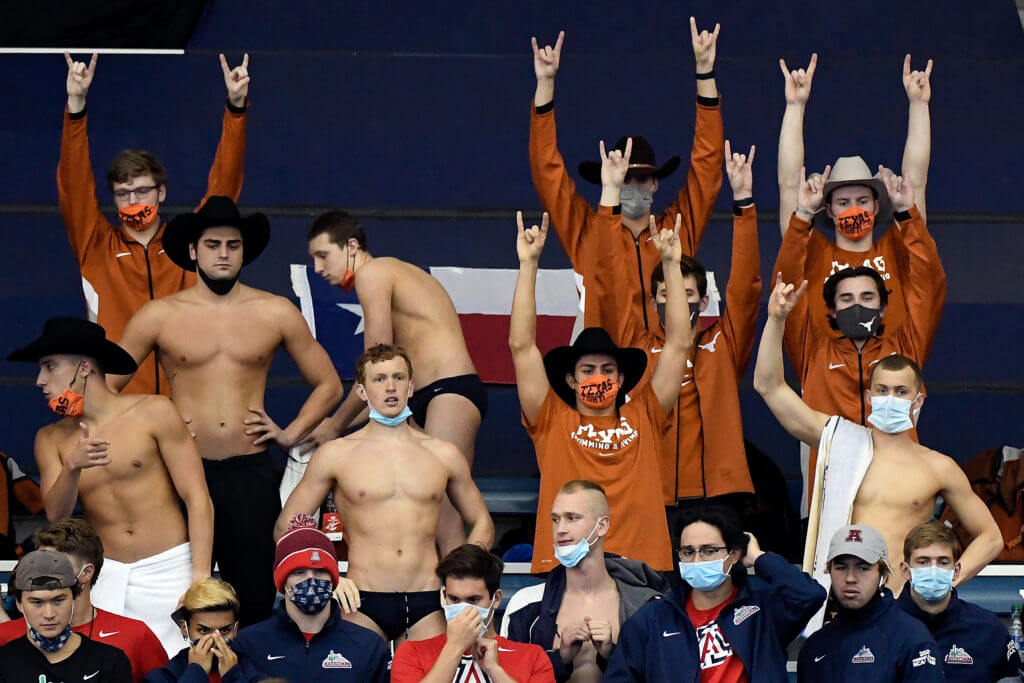Texas Announces Plans to Pay Athletes; Other Universities Expected to Follow

Texas Announces Plans to Pay Athletes; Other Universities Expected to Follow
In June, the Supreme Court ruled unanimously in Alston v. NCAA that universities could provide financial benefits to athletes beyond the scope of scholarships and benefits such as food. The Court ruled that financial awards for academic achievement should be allowed, and Justices Neil Gorsuch and Brett Kavanaugh both cited establish antitrust laws in their opinions. Now, schools including the University of Texas are taking advantage of that ruling.
Beginning in the 2022 spring semester, Texas will provide an “academic achievement award” to “eligible Longhorn student-athletes.” The award will be $2990 per semester or $5980 for each academic year, but it’s not clear what the requirements will be for earning this award. Texas’ vaunted swimming programs, including the defending national-champion Longhorn men, should be eligible for this award.
“We’re excited to be able to provide our student-athletes with additional support, but as importantly, to continue to initiate programs that focus on their academic commitment and success,” Texas athletic director Chris Del Conte said in a press release. “Our student‐athletes have a wonderful opportunity to engage in a world‐class academic experience while pursuing athletic excellence at the highest level.
“We take a holistic approach to the academic and athletic experience while steadfastly encouraging our student-athletes to pursue meaningful and beneficial course work.”
Texas is not the only school planning to implement such a program that provides direct payment to athletes. A report from Sports Illustrated last month revealed that Ole Miss had already begun doling out funds to its athletes, and all athletes who met the academic requirements were paid $2990, including walk-ons (although some students had their checks go toward paying off federal student loans). Ole Miss does not have a swimming and diving program, so no swimmers have received these payments as of yet.
Other Power Five schools may be announcing plans to implement such programs in the near future, although there have been no public announcements to this point. Some schools have expressed concern that granting such payments to athletes may create inequity in Olympic sports such as swimming, creating a divide between schools with extensive financial resources and schools without, but those payments are likely to become standard among universities with plentiful resources over the next several months.



